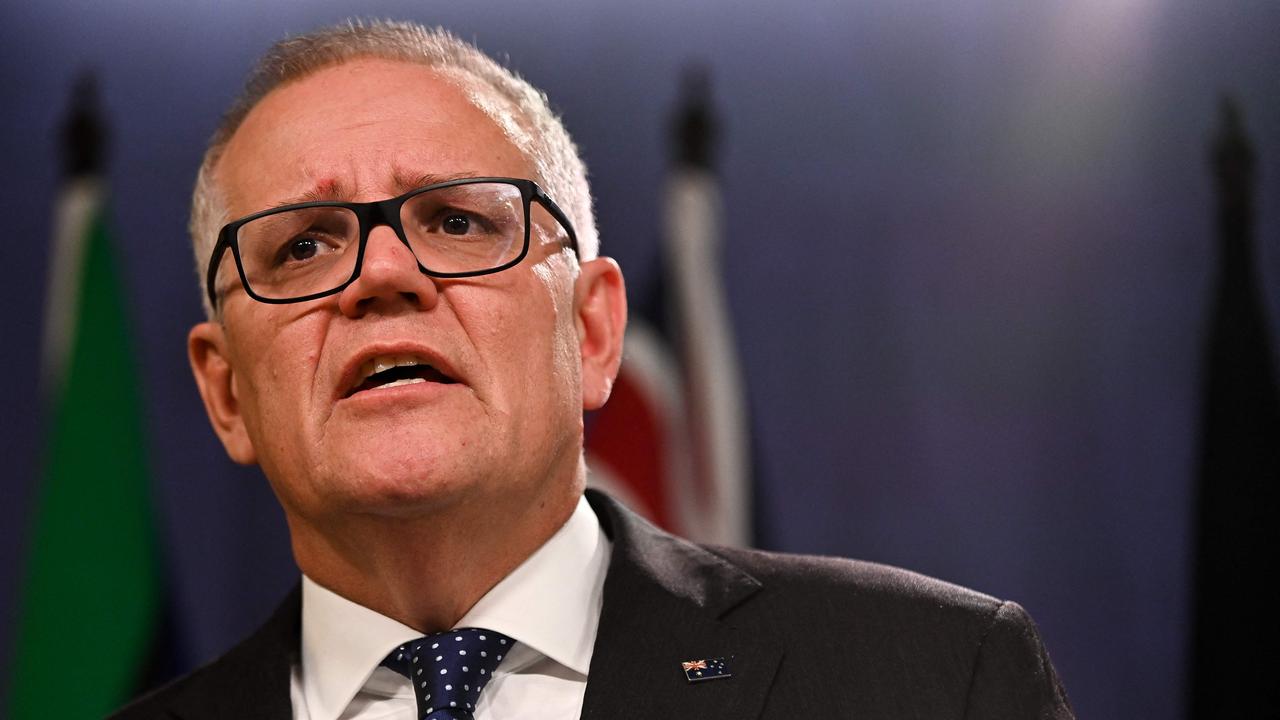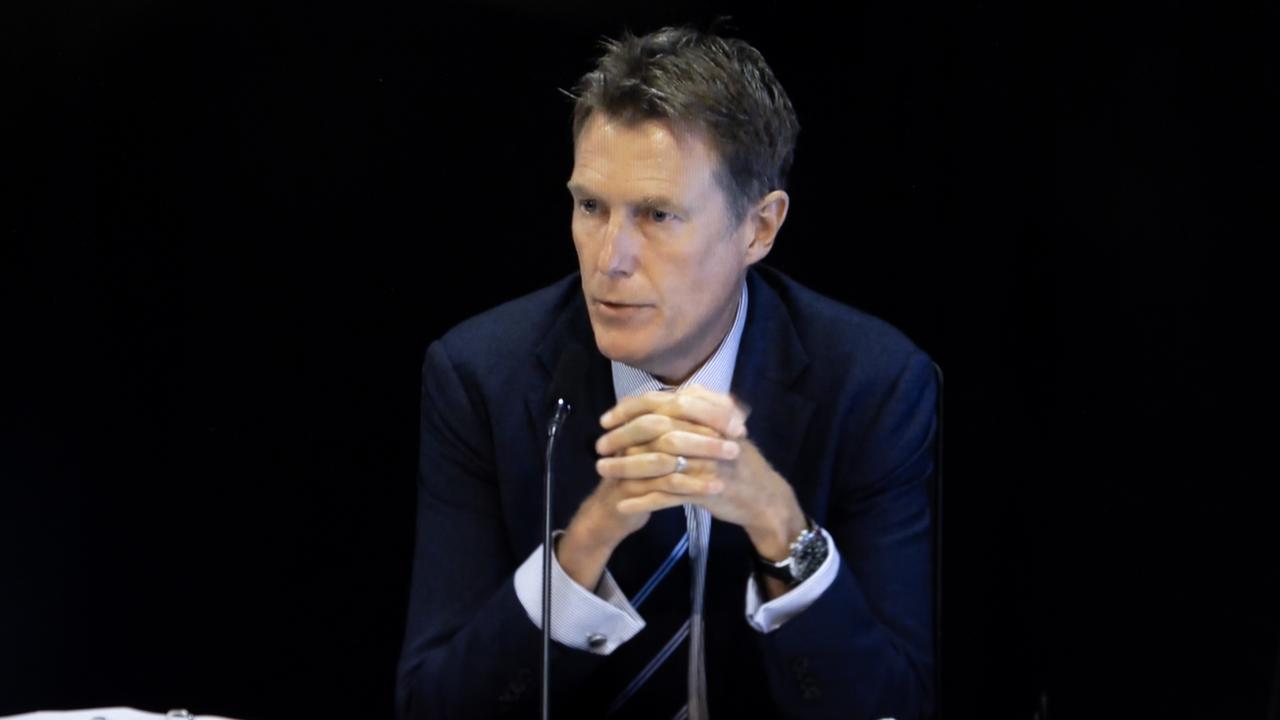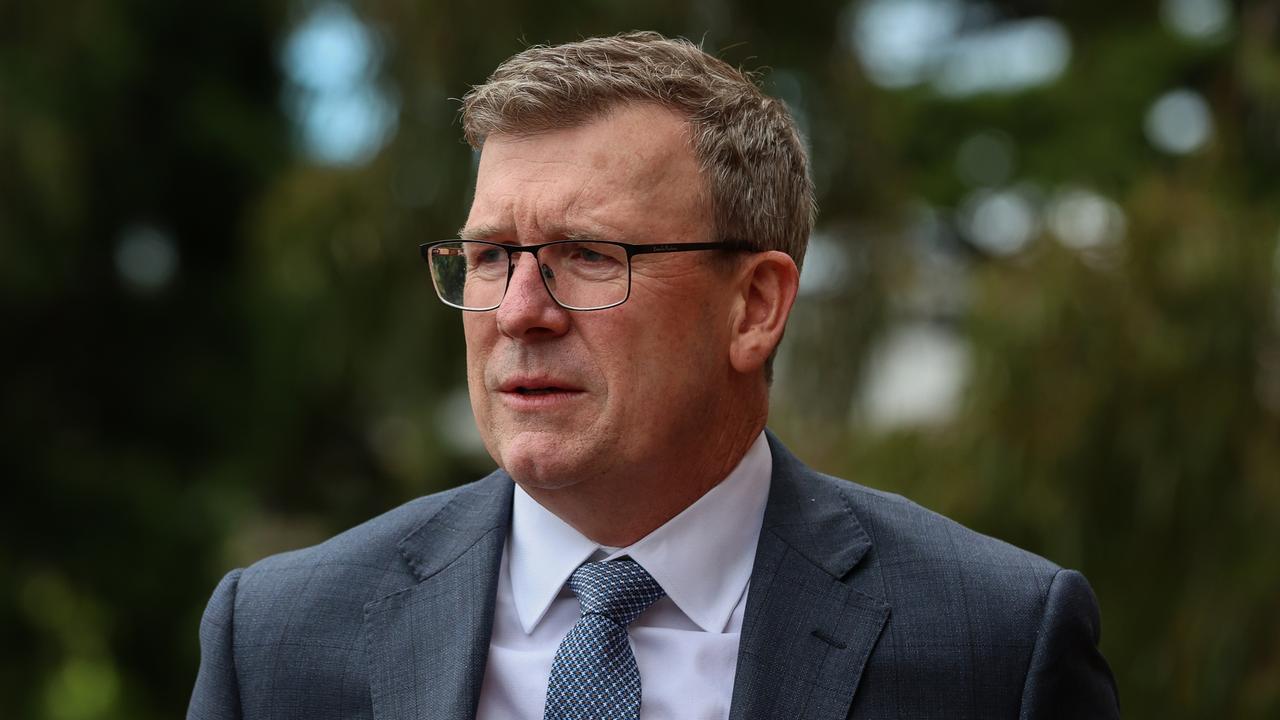Scott Morrison labels robodebt report findings as ‘wrong and unsubstantiated’
Scott Morrison has lashed out at the “unsubstantiated” findings against him in the bombshell robodebt report, but also expressed his “regret”.
Scott Morrison has rejected findings against him in the robodebt report as “wrong and unsubstantiated” but expressed his regret to the scheme’s welfare victims.
In a 1200-word statement today, the former Prime Minister refuted claims that he failed to meet his ministerial responsibility to ensure that the cabinet was properly informed that the robodebt scheme was lawful.
A defiant Mr Morrison said the Royal Commission’s 900 page report suggested it “didn’t understand how government operates.”
“As Prime Minister I oversaw the closure of the scheme,’’ Mr Morrison said.
“I reject completely each of the findings which are critical of my involvement in authorising the scheme and are adverse to me. They are wrong, unsubstantiated and contradicted by clear documentary evidence presented to the Commission.”
But Mr Morrison apologised to those impacted by the debt scheme and said there were lessons to be learned.

“I once again wish to acknowledge and express regret for the unintended consequences of the scheme and the impact that the operations of the scheme had on individuals and their families,’’ he said.
“There are important lessons to be learned from the conduct of the scheme regarding harm minimisation and the use of digital technology to assist with the important task of welfare compliance to protect the integrity of the welfare system, in the interests of taxpayers.”
Mr Morrison said he had acted in good faith and on clear and deliberate Department advice that no legislation was required to introduce the scheme and presented comprehensive evidence to support this position.
“I note the evidence before the Commission confirmed that the responsible Departments maintained the position that the scheme was lawful in subsequent submissions prepared for Cabinet, after I had left the Social Services portfolio,’’ he said.
“Any assertion to the contrary regarding the Department’s position is completely wrong and without any evidentiary basis. I also note the evidence presented to and confirmed by Departmental officials that the existence of departmental legal advice on this matter was inexplicably withheld from Ministers.


“There is no evidence before the Commission which establishes that I was responsible for the departments ceasing in their duties to stop giving frank or candid advice to me regarding the need for legislative change, either by the simple act of me signing the Executive Minute and so agreeing to DHS pursuing something they had initiated, or otherwise.
“Regrettably the status of the Executive Minute has been mischaracterised by the Royal Commission, and in so doing, it is given weight it cannot bear.
“The Executive Minute did not have the significance which the Commission seeks to attribute to it.”
Mr Morrison said the criticism of him in the report demonstrated that the Commission did not understand “how government operates.”
“The Commission has suggested, contrary to decisions of the High Court and long standing practice, that a Minister cannot rely upon the advice of their own department,’’ he said.
“Such a proposition would make the Executive Government completely unworkable. Furthermore, no departmental advice provided at the time of authorisation of the scheme identified risks about the potential hardship the scheme could cause, as the understanding was, supported by documentary evidence provided to the Commission, that the proposal involved the automation of an existing process.
“The findings which are adverse to me are based upon a fundamental misunderstanding of how government operates.”
Christian Porter responds
Former Attorney general Christian Porter said he had discharged his responsibilities in good faith.

“As Mr Porter noted at the Royal Commission, it is a matter of significant regret that during the short period that he was Acting Minister he did not detect issues relating to the lawfulness of the Robodebt Scheme,” his legal team said.
“However, as the evidence revealed, he asked questions and received assurances which he was reasonably entitled to act on as an Acting Minister.
“Had he been informed of this he would have acted immediately to take steps to ensure that it was brought to an end, as he did upon receipt of the advice from the Commonwealth Solicitor-General.”
He had not been told he was the subject of any referrals in the sealed section.
“Mr Porter has access to the same report of the Commission that was released publicly today,” the statement said.
“Mr Porter has not received any notice of referral (or proposed referral) to any investigative body for civil action, criminal prosecution, or otherwise.”
Former Liberal frontbencher Alan Tudge hits back
Royal commissioner Catherine Holmes, SC also accused former Mr Tudge of an “abuse of power” in the report regarding the way the government used material on Centrelink clients.
“As a minister, Mr Tudge was invested with a significant amount of public power,’’ the report said.
“Mr Tudge’s use of information about social security recipients in the media to distract from and discourage commentary about the scheme’s problems represented an abuse of that power.

“It was all the more reprehensible in view of the power imbalance between the minister and the cohort of people upon whom it would reasonably be expected to have the most impact, many of whom were vulnerable and dependent on the department, and its minister, for their livelihood.”
It was a claim Mr Tudge rejected in his own evidence and in today’s statement.
“I strongly reject the commissioner’s comments of the way I use the media and that I had abused my power in doing so,’’ he said.
“I reject that finding in the strongest term. At no stage did I seek to engage in a media strategy that would discourage legitimate criticism of the scheme.
“Further, any releases of individual recipient information, which was generally de-identified and in every single case approved by the Department of Human Services legal counsel, was intended only to correct the public record.
“I strongly reject the observation that I was indifferent to suicides that were brought to my attention. It was standard practice to investigate every suicide that was said to be linked to Centrelink. Sadly, each year social workers and Centrelink deal with 5000 referrals for customers at risk of suicide.”
Read related topics:Scott Morrison






